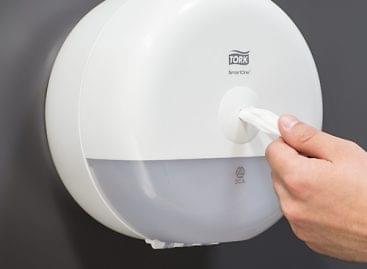Two-thirds of Valentine’s Day waste is not recyclable
In the European Union, more than 100,000 tonnes of waste are generated on a single Valentine’s Day, 70% of which comes from single-use packaging, plastic decorations and short-lived gifts, as well as a lot of kitchen scraps. According to the latest research, the amount of waste generated during Valentine’s Day celebrations is increasing dramatically, placing a huge environmental burden on the planet. Bouquets of flowers, chocolates, small ornaments and other accessories are often made thousands of kilometres away and end up in the bin almost immediately. With a little attention, their harmful effects can be greatly reduced.

Valentine’s Day dinners and gifts can also be sustainable, warns the new partner organisation of the European Climate Pact, the Responsible Gastronomy Foundation. Experts from the Sustainable Food Initiative have warned that traditional Valentine’s Day gifts and treats – bouquets of flowers, chocolates, decorative items and other short-lived products – are already a problem in themselves. In addition to the often imported raw materials, long supply chains and intensive refrigeration systems required to produce them, they are also hampered by the fact that these products are mostly disposable, ending up in landfills or incinerators almost immediately after consumption, further increasing emissions. In the UK alone, 4,200 tonnes of food waste is generated, and restaurant food waste increases by 35% during Valentine’s Day.
One of the main aims of the European Climate Pact is to raise awareness of the importance of individual action. Various holidays are particularly good times to take advantage of this opportunity. Instead of traditional gifts with a large environmental footprint, there are many alternative solutions that are not only more personal, but also useful in the long run.
Instead of bouquets of flowers grown far away, treated with many chemicals and not yet in season in February, we can give gifts of potted, locally grown flowers or herbs. Instead of industrial, large-scale and often ethically questionable chocolate and chocolate at the cost of deforestation, we can also buy and make homemade, fair trade or organic delicacies. This way, in addition to the taste experience, we can be sure that we are giving a gift of an ethically and responsibly produced product.
Related news
Related news
Festival buzz at the 60th anniversary EuroShop trade fair
🎧 Hallgasd a cikket: Lejátszás Szünet Folytatás Leállítás Nyelv: Auto…
Read more >No matter how much you save, food and gadgets always take the money
🎧 Hallgasd a cikket: Lejátszás Szünet Folytatás Leállítás Nyelv: Auto…
Read more >Historic price reduction at ALDI
🎧 Hallgasd a cikket: Lejátszás Szünet Folytatás Leállítás Nyelv: Auto…
Read more >








